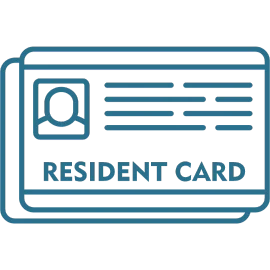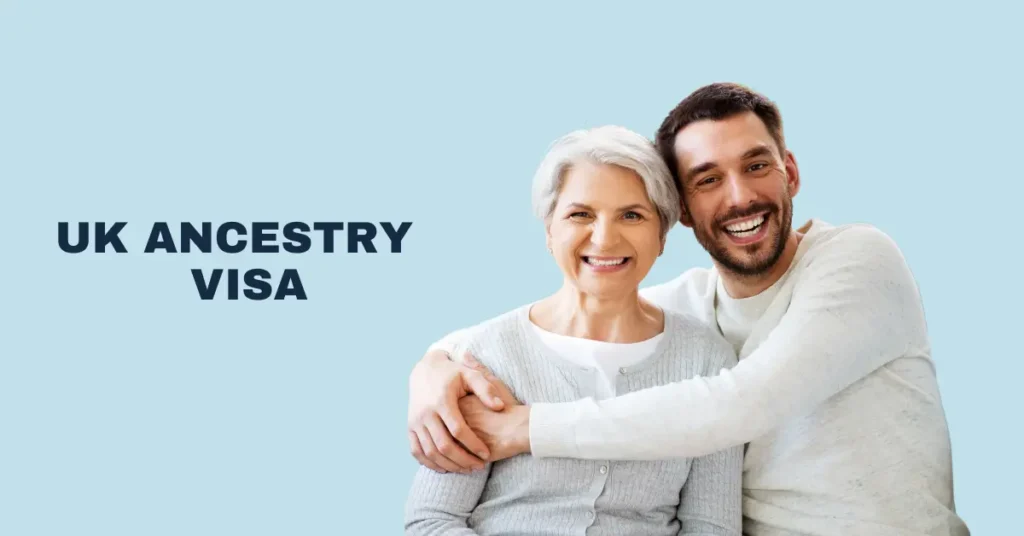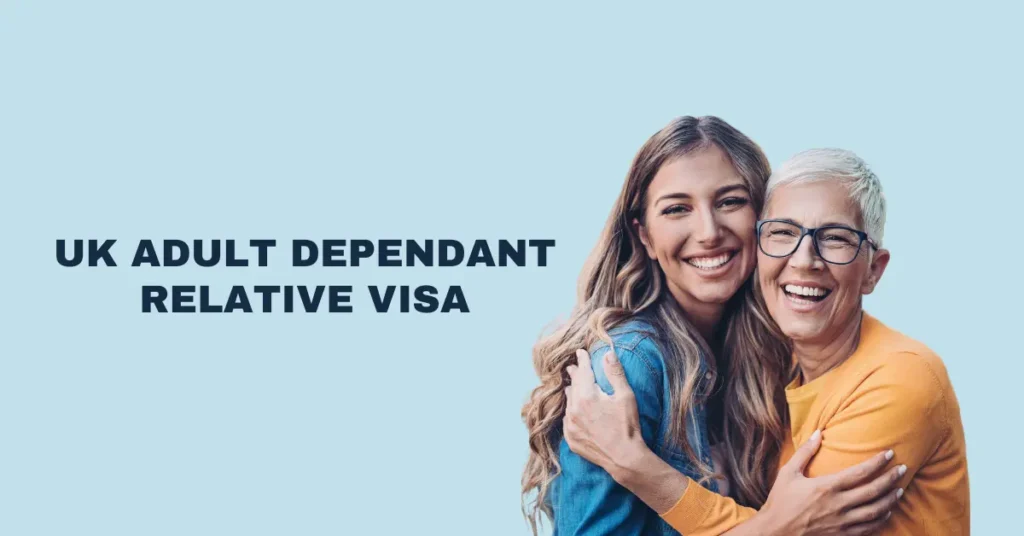What Is the UK Fiancé Visa?
The UK Fiancé Visa, often referred to as the Fiancée Visa, Proposed Civil Partner Visa, or Engagement Visa, is a key component of the family visa program. It grants eligible foreign nationals aged 18 and above the opportunity to come to the UK for the purpose of marriage or entering into a civil partnership with a British citizen or a person with settled status, such as someone with Indefinite Leave to Remain or EU Settled Status.
To obtain this visa, applicants must meet specific eligibility criteria, which will be elaborated on in the following sections. Upon receiving a Fiancé Visa, you will have a 6-month window from the date of entry into the UK to formalise your marriage or civil partnership. Subsequently, you can apply for a Spouse Visa, which provides an initial 33-month stay, extendable for an additional 30 months. After meeting the necessary requirements, you can then apply for Indefinite Leave to Remain (ILR), granting you permanent residence in the UK without being subject to immigration regulations.
UK Fiancé Visa Requirements Explained
For a successful Fiancé Visa application, it’s imperative to meet the following eligibility criteria and demonstrate the following:
- Both you and your partner must be at least 18 years old.
- You must have concrete plans to marry or form a civil partnership within six months of arriving in the UK.
- Your partner should be a British or Irish citizen, hold settled status in the UK (such as indefinite leave to remain or EU settled status), have a UK Turkish businessperson visa or UK Turkish worker visa, or possess refugee status or humanitarian protection in the UK.
- The intention should be to live together in the UK after marriage or civil partnership.
- You and your partner should be financially self-sufficient, with a combined income of at least £29,000.
- You must have appropriate accommodation arranged in the UK.
- Adequate proficiency in the English language is required, which can be demonstrated by passing an English language test at a minimum level of A1 on the Common European Framework of Reference for Languages (CEFR) scale.
1. Genuine Relationship Requirements
To satisfy the genuine relationship requirement, you must establish the following:
- You are in a genuine relationship with your partner residing in the UK.
- Both of you have concrete plans to marry or form a civil partnership within the UK within six months of your arrival in the country.
- Your intention is to live with your partner in the UK following your marriage or civil partnership.
It’s crucial to recognise that UK Visas and Immigration (UKVI) remains vigilant about the potential for fraudulent or “sham” relationships, where applicants falsely claim to be in an eligible relationship when they are not.
If you have any uncertainties about meeting the criteria for a genuine relationship, don’t hesitate to consult one of our immigration solicitors at +44 (0) 333 577 0034, who can verify your eligibility.
2. Fiance Visa Financial requirements
As an applicant for the Fiancé Visa, it’s essential that both you and your partner, who is based in the UK, meet the minimum combined gross annual income requirement of £29,000.
You can consider the following sources of income when applying for a Fiancé Visa:
- Income from employment or self-employment: Provide payslips, tax returns, or other documentation to verify your employment income. If you are self-employed, provide bank statements, business accounts, or tax returns to demonstrate your earnings.
- Pension income of the applicant and/or partner: If you or your partner receive pension income, provide pension statements or other official documents from the pension provider.
- Maternity allowances or bereavement benefits received by the partner in the UK: If your partner has received maternity allowances or bereavement benefits in the UK, provide documentation from the relevant government agency.
- Any other income and/or savings declared by the applicant and/or partner: If you or your partner have any other sources of income or savings, such as rental income, investments, or savings accounts, provide documentation to support your claims.
Using savings towards the financial requirement
Using savings to meet the financial requirement is also an option, provided the savings exceed £16,000. If you have sufficient savings (amounting to at least £62,500), you won’t need to demonstrate any income. The Home Office calculates this as follows:
Step 1: Divide the amount of savings exceeding £16,000 by 2.5 (representing the number of years the savings must cover).
Step 2: Subtract the result from the minimum income requirement applicable to your situation (i.e., £29,000 ).
For example:
£30,000 in savings: £30,000 – £16,000 = £14,000 / 2.5 = £5,600
£29,000 – £5,600 = £23,400
In this scenario, if you possess savings of £30,000, you only need to demonstrate an annual income of £23,400.
When submitting your Fiancé Visa application, you will be required to declare the source of your cash savings.
Gaining an exemption from the financial requirements for a Fiance Visa application
Exemptions from the financial requirements for a Fiancé Visa application are available for sponsors receiving income from specific sources such as:
- Disability Living Allowance: A benefit for those with care or mobility needs due to a disability or health condition.
- Severe Disablement Allowance: Provided to individuals with severe disabilities that hinder their capacity to work.
- Armed Forces Independence Payment or Guaranteed Income Payment under the Armed Forces Compensation Scheme: Designed to support armed forces personnel who have suffered injury or illness due to service.
- Mobility Supplement, Constant Attendance Allowance, or War Disablement Pension under the War Pensions Scheme: Offered to veterans or their dependents who experience disability or injury related to military service.
- Police Injury Pension: Granted to police officers who have incurred injuries or disabilities during the course of their duties.
- Industrial Injury Disablement Benefit: Provided to individuals who have sustained work-related injuries or disabilities.
- Attendance Allowance: A benefit for those who require assistance due to disability or health conditions.
- Carers’ Allowance: Given to individuals providing care and support to someone with substantial care needs.
In such cases, sponsors are not obligated to meet the £29,000 income threshold. Nevertheless, applicants must still demonstrate that they have sufficient funds to support themselves in the UK and secure suitable accommodation without relying on public funds.
If none of the provided exemptions are applicable, applicants may seek consideration of exceptional circumstances by the Home Office. This may be possible, particularly if they can demonstrate that, in accordance with human rights law, their child/ren would be at risk if the application is denied. In such instances, applicants must still prove they have ample funds, which can include credible sources, such as a financial support guarantee from another individual. For personalised guidance on your situation, please consult one of our immigration solicitors who will provide expert advice.
3. English Language Proficiency Requirement
As an applicant for the Fiancé Visa, you must demonstrate your competence in the English language, and there are three ways to meet this requirement:
- Passing an English Language Test:
- To satisfy the English language requirement, you can achieve this by successfully completing a Common European Framework of Reference for Languages (CEFR) English test administered by an approved testing centre. The minimum level required is A1 in both speaking and writing.
- Academic Qualifications:
- You can also meet the English language requirement if you hold a degree or other academic qualification that was delivered in English.
- Exemptions: Certain individuals are exempt from the English language requirements, including those who:
- Are aged over 65
- Have a physical or mental condition that prevents them from meeting the requirement
- Hail from one of the following countries: Antigua and Barbuda, Australia, the Bahamas, Barbados, Belize, Canada, Dominica, Grenada, Guyana, Jamaica, New Zealand, St Kitts and Nevis, St Lucia, St Vincent and the Grenadines, Trinidad and Tobago, or the USA.
4. Accommodation Requirements for the UK Fiancé Visa
Applicants for the UK Fiancé Visa are obligated to demonstrate the adequacy of their accommodation in the UK. The accommodation must fulfil the following conditions:
- Ownership or Exclusive Occupation
- Sufficient Living Space
- Compliance with Public Health Standards
UK Fiancé Visa Required Documentation
When applying for your Fiancé Visa in the UK, you must provide a range of crucial documents with your visa application. The UKVI will provide specific guidance on the required documents and forms of evidence, which may encompass:
- Completed Application Form and Payment of Application Fee: Ensure you submit a fully filled application form along with the necessary application fee.
- Valid Passport: Provide your current, valid passport for identity and travel documentation.
- Previous Passports: Include any prior passports you’ve held.
- Evidence of Your Genuine Relationship: To substantiate the authenticity of your relationship with your UK-based partner, you should include:
- Letters of reference from friends, family, or professionals validating your relationship.
- Shared bills and bank statements.
- Divorce certificates from any previous marriages.
- Photographs, correspondence, and messages that support your relationship.
- Details about your relationship, including when and where you met.
- Evidence of Meeting English Language Requirements: Present a CEFR exam certificate or relevant documentation demonstrating your compliance with the language requirements.
- Two Passport-Sized Color Photographs: Ensure the photos adhere to the specified UK criteria for size and format.
- Proof of Meeting Financial Requirements: This can encompass bank statements, savings statements, and wage slips to establish your financial stability.
- Information on Previous Immigration Applications: Include details of any prior immigration applications if applicable.
- Details About Any Criminal Convictions: Provide information on any criminal convictions in your history.
- National Insurance Number: Include your national insurance number if applicable.
- Proof of Accommodation Arrangements in the UK: Demonstrate that you have suitable accommodation in the UK.
- Biometric Information: This includes fingerprints and a digital photograph.
- Tuberculosis Test Results: If mandated based on your country of origin, provide your tuberculosis test results.
To ensure a favourable outcome for your Fiancé Visa application, it’s imperative that you provide all the required evidence and documentation in compliance with UKVI guidelines. Failure to do so, or to provide documents in the correct format and appropriately translated if necessary, may result in visa refusal or visa delays.
Considering the intricate nature of Fiancé Visa documentation requirements, we strongly recommend seeking legal counsel from a family immigration solicitor before submitting your application. Our team is dedicated to ensuring the inclusion of all necessary evidence in your application to UKVI and rectifying any errors or omissions. Feel free to contact us at +44 (0) 333 577 0034 for expert guidance on your partner/Fiancé Visa application.
How to apply for a UK Fiance Visa
The application process for a UK Fiance Visa is completed through the Home Office website, and the steps to follow are outlined as follows:
- Confirm Your Eligibility for a Fiancé Visa: If you have uncertainties about meeting the eligibility criteria, our team of experienced family visa solicitors can offer clarity and guidance.
- Gather Vital Documentation to Substantiate Your Eligibility: For your convenience, our family visa solicitors can assist in assembling the necessary documents required to validate your eligibility.
- Complete the Online Application Form: Fill out the online application form accurately and thoroughly.
- Payment of the Application Fee: Ensure the payment of the applicable application fee.
- Upload Crucial Supporting Documents: Enhance your application by including essential supporting documents that provide evidence of your eligibility.
- Schedule a Biometric Appointment: Arrange a biometric appointment for the capture of your fingerprints and a photograph.
- Attend an Interview if Requested: In case you receive an invitation, attend an interview as part of the application process.
How long can you stay on a Fiancé Visa in the UK?
Upon approval, the Fiancé Visa permits you to reside in the UK initially for a period of 6 months, intended for the purpose of marriage or entering into a civil partnership. After your marriage, you have the option to apply for a Spouse Visa, which offers a validity of up to 30 months. This Spouse Visa can then be renewed for an additional 30 months. It’s important to note that the same eligible relationship with your UK-based partner must be maintained, and you must submit your application before the expiration of your current visa.
Moving from Fiancé Visa to Indefinite Leave to Remain (ILR)
After living in the UK for a combined period of 5 years on both your Fiancé and Spouse Visas, you become able to apply for Indefinite Leave to Remain (ILR). This status grants you permanent residency in the UK, exempting you from immigration control. To secure ILR, you must:
- Reside in the UK for 5 Years: You must have lived in the UK for a cumulative 5 years under a family visa as a partner.
- Maintain Cohabitation: Ensure that you have continuously lived with your partner since your last visa renewal.
- Sustain a Genuine Relationship: Maintain a sincere and lasting relationship with your partner.
- Commit to the Relationship: Express your intention to continue your relationship after applying for ILR.
- Meet Language and Life in the UK Requirements: Satisfy the language and Life in the UK requirements as per immigration guidelines.
- Accommodation Proof: Provide evidence of suitable accommodation arrangements in the UK.
- Financial Stability: Continue to meet the financial requirements to support your stay in the UK.
Fiance Visa vs Spouse Visa
Several distinctions exist between the UK Fiance Visa and the UK Spouse Visa:
- Fiance Visa: Designed for eligible couples planning to marry or form a civil partnership before applying for a Spouse Visa.
- Spouse Visa: Intended for couples who are already married, in a civil partnership, or have lived together in a relationship for a minimum of 2 years when applying.
- Fiance Visa grants a 6-month initial stay period.
- Spouse Visa permits an initial stay of up to 33 months (or 30 months if transitioning from a Fiance Visa), with the possibility of a subsequent 30-month extension.
What to Do if Your Fiancé Visa Application Is Rejected
A Fiancé Visa application can be declined on various grounds, including when:
- Exclusion in the Public Interest: The Secretary of State believes that allowing the applicant into the UK is against the public interest.
- Deportation Order: The applicant is subject to a deportation order at the time of application.
- Conduct, Character, or Associations: The applicant’s conduct, character, or associations are determined to be in conflict with the public interest and warrant exclusion.
- Non-Compliance without Reasonable Excuse: The applicant fails to comply without a reasonable excuse. This includes missing a mandatory interview, failing to provide specified information, refusing a required medical examination, or neglecting to report as required, regardless of whether any misrepresentation is intentional or known to the applicant.
- Undesirable Entry for Medical Reasons: Entry clearance is considered undesirable for medical reasons.
- Unpaid or Inadequate Fees: Mandatory fees, including the Immigration Health Surcharge (IHS), have either not been paid or have been inadequately fulfilled.
- Insufficient Evidence of Financial Support and Accommodation: The application lacks sufficient evidence of financial support and suitable accommodation.
In the event of your Fiancé Visa application being denied, consult with one of our immigration solicitors who can guide you on the appropriate steps to enhance the chances of a successful resolution for your case.














































